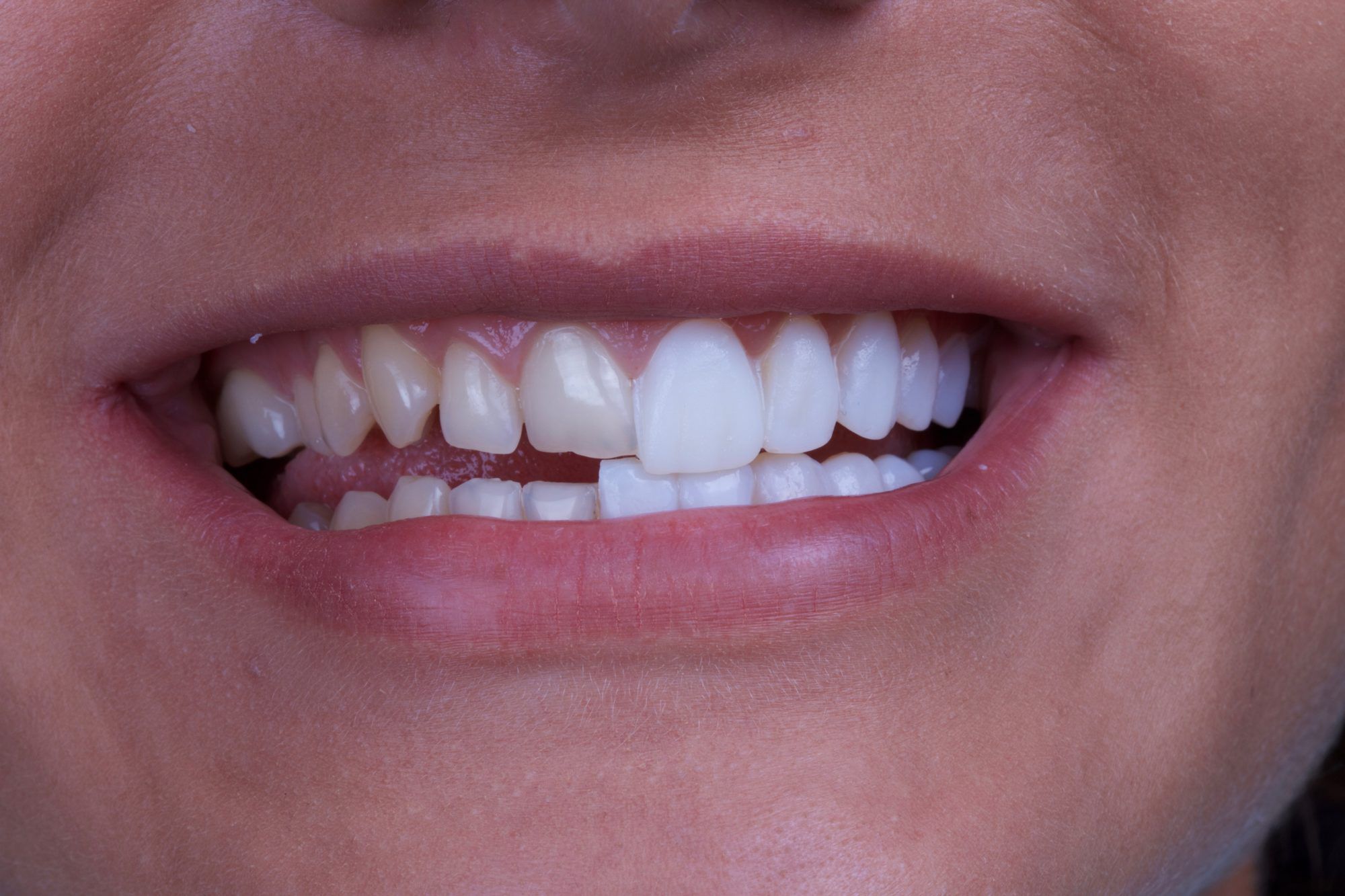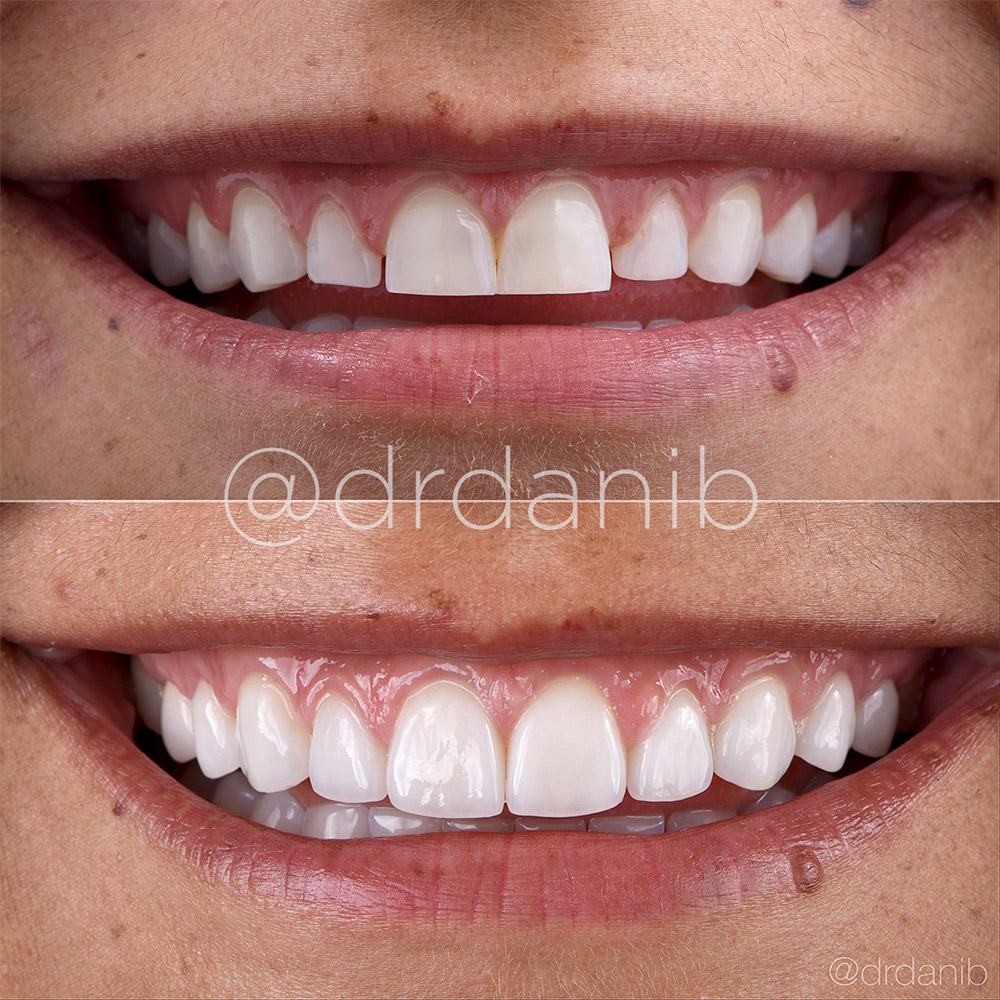What Are Veneers: Common Myths Debunked by Experts
Wiki Article
The Complete Overview of Veneers: Kinds, Uses, and Their Effect on Your Smile
Veneers function as a popular solution for individuals looking for to boost their oral looks. These custom-crafted coverings can effectively mask flaws such as discoloration and voids. With 2 key types offered, porcelain and composite resin, each offers distinct advantages and restrictions. The influence of veneers extends beyond simple appearance, affecting self-esteem and social interactions. Understanding their types and benefits is crucial. What might this imply for one's general quality of life?Comprehending Veneers: What They Are and Exactly how They Work
Veneers are slim coverings, normally made from porcelain or composite material, that are custom-crafted to fit over the front surface of teeth. They serve both visual and functional purposes, offering a solution for various dental imperfections such as discoloration, gaps, and small imbalances. By sticking to the tooth enamel, veneers create a natural look while enhancing the shape and shade of the teeth.The procedure normally includes a preliminary consultation, where a dental expert examines the patient's needs and reviews preferred end results - Dental Veneers. Following this, a very little amount of enamel might be gotten rid of to suit the veneer. Impacts of the teeth are after that taken to ensure a precise fit. As soon as made, the veneers are bound securely to the teeth utilizing a special oral adhesive. This procedure not only enhances the smile's appearance but also aids shield the underlying teeth from more damages, making veneers a prominent option for lots of seeking a smile remodeling
Sorts of Veneers: Porcelain vs. Compound Resin
The distinction in between porcelain and composite material veneers lies in their material composition and qualities. Each type provides varying degrees of sturdiness, longevity, and price, influencing patients' selections based on their specific requirements. Recognizing these distinctions is essential for making an educated decision relating to oral improvements.Material Distinctions Clarified
While both porcelain and composite material veneers offer the same cosmetic function, they differ considerably in product properties, sturdiness, and visual end results. Porcelain veneers are crafted from a ceramic product that imitates the natural transparency of teeth, giving a natural look. Their smooth surface is resistant to staining, making them an attractive choice for those looking for a lasting visual. On the other hand, composite resin veneers are made from a tooth-colored plastic material, using convenience and convenience of application. Nevertheless, they may not accomplish the exact same degree of illumination or clarity as porcelain. In addition, composite veneers can be much more quickly shaped and fixed, making them a much more adaptable choice in certain oral circumstances. Each kind offers one-of-a-kind benefits customized to private preferences.Longevity and Resilience
When comparing porcelain and composite resin veneers, longevity and resilience are considerable factors. Porcelain veneers are understood for their stamina, frequently lasting 10 to 15 years with appropriate care. Their durability against discoloring and breaking makes them a preferred option for people looking for long-term results. On the other hand, composite resin veneers typically have a much shorter lifespan, averaging 5 to 7 years. While they can be fixed much more quickly if damaged, they are extra vulnerable to put on and staining over time. The choice between these materials frequently relies on the person's way of life, visual goals, and upkeep choices. Inevitably, recognizing the distinctions in long life and durability can guide patients in picking the veneer kind that ideal fits their needs.Cost Contrast Insights
When picking between porcelain and composite material veneers, price is a crucial factor to consider. Porcelain veneers typically vary from $800 to $2,500 per tooth, mirroring their longevity, visual appeal, and resistance to staining. These veneers require a more considerable procedure and specialized lab work, adding to their higher cost tag. On the other hand, composite material veneers are typically much more economical, costing between $250 and $1,500 per tooth. They can be applied in a solitary see, which decreases labor expenses. Nevertheless, composite veneers may need much more frequent replacements, possibly raising lasting expenditures. Ultimately, the choice in between porcelain and composite resin veneers depends upon individual spending plans and desired outcomes, balancing first costs versus long life and aesthetic outcomes.The Advantages of Picking Veneers for Your Smile
Choosing veneers provides considerable advantages for those looking for a boosted smile. Their boosted visual charm can transform the look of teeth, while their stain-resistant homes assure a lasting illumination - What Are Veneers. This combination makes veneers a popular alternative for people aiming to accomplish a remarkable smileBoosted Aesthetic Appeal
Veneers usually arise as a preferred solution due to their transformative aesthetic advantages when individuals seek to enhance their smiles. These thin shells, typically made from porcelain or composite resin, can properly conceal blemishes such as chips, gaps, and imbalance. By simulating the natural look of teeth, veneers supply a seamless, radiant smile. Their personalized nature enables for a tailored method, making it possible for people to pick tones and forms that best suit their facial features. Additionally, veneers can produce a consistent look, improving total face proportion. This aesthetic improvement not only boosts confidence yet can likewise positively influence personal relationships and social communications, making veneers a preferred option for those looking to accomplish a brighter, a lot more eye-catching smile.Tarnish Resistance Advantages
Veneers not only boost visual appeal but additionally supply significant tarnish resistance, making them an attractive alternative for people worried regarding preserving a brilliant smile. Made up of long lasting materials such as porcelain or composite material, veneers are less permeable than all-natural teeth, which aids avoid the absorption of spots from typical perpetrators like coffee, tea, and red a glass of wine. This intrinsic stain resistance permits individuals to enjoy their preferred drinks without bothering with staining. Veneers Teeth. In addition, the smooth surface of veneers makes them simpler to tidy, further enhancing their longevity and maintaining their immaculate look. As a result, veneers provide a useful option for those seeking both elegance and capability in their oral careThe Process of Getting Veneers: What to Anticipate

Although the procedure of getting veneers may seem challenging, understanding the steps entailed can reduce concerns. At first, an examination with a dental expert is needed to figure out if veneers are the suitable option for the individual's oral issues. During this consultation, the dentist will discuss desired outcomes and take impacts of the teeth.
Next off, a second consultation is scheduled for tooth preparation, where a small quantity of enamel is typically gotten rid of to accommodate the veneers. Short-lived veneers may be positioned while the custom-made ones are crafted in a dental lab, which generally takes a couple of weeks.
Once prepared, the dental expert will certainly position the veneers, guaranteeing appropriate fit and color prior to bonding them to the teeth using a special adhesive. After final changes, the dental practitioner will provide guidance on care. Understanding these steps can aid people really feel a lot more comfy and notified throughout the veneer Porcelain Veneers Dentist procedure.
Maintenance and Look After Your Veneers
Maintaining veneers needs constant like guarantee their longevity and appearance. Appropriate oral hygiene is important; brushing twice daily with a non-abrasive toothpaste and flossing regularly aid avoid plaque buildup around the veneers. Furthermore, routine dental examinations are crucial for monitoring the problem of the veneers and attending to any type of possible issues beforehand.Individuals need to prevent tough foods and excessive force when biting to stop damage. It's likewise suggested to restrict usage of discoloring substances, such as coffee, tea, and merlot, as these can influence the veneers' shade gradually.

Transforming Your Smile: Real-Life Impact of Veneers
A radiant smile can considerably boost one's self-confidence and general appearance. For several people, veneers act as a transformative option, successfully addressing various dental worries such as discoloration, voids, and misalignment. These slim shells, customized to fit over the front of the teeth, can develop an unified and cosmetically pleasing smile.Real-life situations highlight the profound influence veneers can have. Individuals frequently report an instant increase in self-worth and social communications following their treatment. The newly found self-confidence can result in more possibilities in specialist and individual life, as individuals feel more likely to involve and share themselves.
Furthermore, the psychological advantages extend beyond mere appearance; many experience boosted psychological wellness as they embrace their smiles. Veneers not only boost physical characteristics but also contribute significantly to general high quality of life, underscoring their worth in cosmetic dentistry.
Regularly Asked Questions
For How Long Do Veneers Usually Last Prior To Requiring Replacement?
Veneers typically last in between 10 to 15 years prior to calling for substitute. Variables such as dental health, dental practices, and the sort of product utilized can influence their longevity and total durability. Regular oral check-ups are advisable.Can Veneers Be Eliminated, and if So, How?
Yes, veneers can be removed. A dental professional usually utilizes specific devices to thoroughly remove them from the teeth, making sure very little damages to the underlying enamel, often followed by necessary changes or reconstructions for excellent appearances.Are Veneers Suitable for Everyone's Dental Condition?

Will Getting Veneers Hurt or Require Anesthesia?
Getting veneers typically includes marginal pain, and numerous clients receive neighborhood anesthesia to assure a pain-free experience. Level of sensitivity may take place briefly later, but many locate the procedure tolerable and are pleased with the outcomes.Just How Do Veneers Affect Tooth Sensitivity After Positioning?
Veneers can briefly enhance tooth sensitivity due to the elimination of enamel and the bonding procedure. Most individuals experience a reduction in level of sensitivity gradually as the teeth change to the new veneers.Veneers are thin shells, commonly made from porcelain or composite resin, that are custom-crafted to fit over the front surface area of teeth. Porcelain veneers are crafted from a ceramic material that mimics the natural transparency of teeth, providing a realistic look. Porcelain veneers typically range from $800 to $2,500 per tooth, mirroring their durability, visual appeal, and resistance to discoloration. In comparison, composite material veneers are typically more affordable, setting you back in between $250 and $1,500 per tooth. Composed of durable materials such as porcelain or composite material, veneers are much less permeable than natural teeth, which aids protect against the absorption of spots from typical wrongdoers like coffee, tea, and red white wine.
Report this wiki page